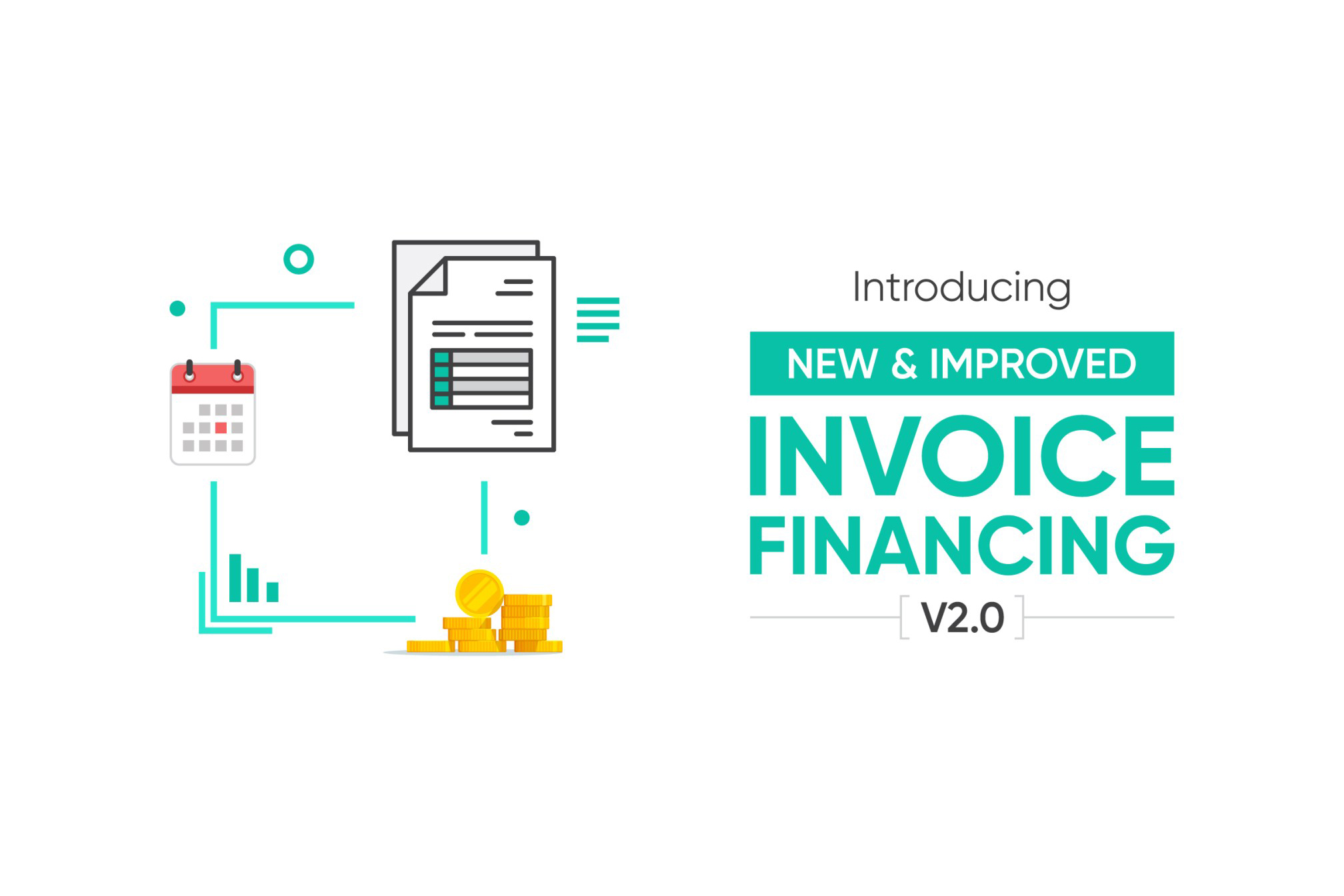Working capital is a crucial aspect of a business's financial health, as it affects a company's ability to meet its financial obligations, pay its bills and invest in growth opportunities. To improve working capital, businesses can turn to business financing loans, which provide companies with the funds they need to meet their financial goals. In Malaysia, several financial institutions offer business loans to companies, and the process of applying for a business loan can be a straightforward one if the right steps are taken. In this article, we will explore how companies can improve their working capital by applying for a business loan in Malaysia, including the process of applying for a loan, the requirements for a loan, and the benefits of having a strong working capital position.
Working Capital
Working capital is an important factor in the success of any business. It refers to the number of funds available to meet the day-to-day operational expenses and debts that a company has to pay. If a company does not have enough working capital, it may face liquidity problems, and it could result in the inability to pay its bills on time or even the closure of the business. Improving working capital is crucial to keep a business running smoothly, and one of the ways to achieve this is by applying for a business loan.
Improving Working Capital
Working capital management is the process of ensuring that a company has enough funds to meet its financial obligations, pay its bills and invest in growth opportunities. There are several ways to improve working capital, including reducing inventory, collecting accounts receivable faster, reducing expenses, and increasing sales.
1. Reducing Inventory
One way to improve working capital is by reducing the amount of inventory a company holds. Inventory is a significant component of working capital, and reducing the amount of inventory a company holds can free up cash that can be used to pay bills and invest in growth opportunities. Companies can achieve this by implementing an inventory management system that allows them to track inventory levels and make informed decisions about when to order more inventory and how much to order. This can help companies avoid overstocking and reduce the amount of capital tied up in inventory.
2. Collecting Accounts Receivable Faster
Another way to improve working capital is by collecting accounts receivable faster. Accounts receivable refers to the money that a company is owed by its customers for goods or services that have been delivered but not yet paid for. The faster a company can collect its accounts receivable, the more quickly it can access the funds it needs to pay its bills and invest in growth opportunities. Companies can improve their accounts receivable collection process by implementing a credit management system, offering early payment discounts, and regularly following up with customers to ensure that payments are made on time.
3. Reducing Expenses
Reducing expenses is another way to improve working capital. By reducing expenses, companies can free up more funds that can be used to pay bills and invest in growth opportunities. Companies can reduce expenses by reviewing their budgets regularly, identifying areas where they can cut costs, and negotiating better deals with suppliers. Companies need to focus on reducing expenses that have the biggest impact on their bottom line and avoid cutting corners on expenses that are essential to their business.
4. Increasing Sales
Finally, increasing sales is another way to improve working capital. By increasing sales, companies can generate more revenue, which can be used to pay bills and invest in growth opportunities. Companies can increase sales by expanding their customer base, developing new products or services, and marketing their business more effectively. Companies need to focus on sustainable growth and avoid taking on too much risk when trying to increase sales.

(Photo by CFO Selections)
Apply for a Loan
When it comes to improving working capital, one of the most effective ways is to apply for a business loan. Business loans can provide companies with the funds they need to invest in growth opportunities, meet their financial obligations, and pay their bills.
When applying for a business loan, companies need to consider several factors to ensure that they are making the best decision for their business. One of the first factors to consider is the interest rate and repayment terms of the loan. Companies need to make sure that they can afford the monthly payments and that the loan is structured in a way that meets their needs. It's also important for companies to consider the reputation of the financial institution they are working with and the terms and conditions of the loan.
In addition to these factors, companies also need to provide the financial institution with a comprehensive business plan that includes information about their business, its history, financial projections, and their plans for using the funds from the loan. A well-prepared business plan can increase a company's chances of being approved for a loan and can also help the financial institution understand the company's goals and objectives.
It's important for companies to be proactive and to start the loan application process well in advance of when they need the funds. This will give them time to gather all of the necessary documentation, prepare a comprehensive business plan, and negotiate the best terms for their loan.
Applying for a business loan can be an effective way for companies to improve their working capital and access the funds they need to invest in growth opportunities, meet their financial obligations, and pay their bills. However, companies need to take the time to research their options, prepare a comprehensive business plan, and consider all of the factors involved in the loan process before making a decision.

(Photo by iProperty.com)
Business Financing Loan
Business financing loans are loans designed specifically for businesses. They can be used to finance a variety of expenses, including working capital, capital expenditures, and growth opportunities. Business financing loans can come in many forms, including term loans, lines of credit, and equipment financing.
Business financing loans are an important source of funding for many businesses, providing them with the funds they need to grow and expand. These loans are designed to meet the unique needs of businesses and can be structured in a way that best meets their financial needs.
One of the most common types of business financing loans is the term loan. A term loan provides businesses with a lump sum of funds that must be repaid over a fixed period, usually with regular payments that include both principal and interest. This type of loan is ideal for businesses that need to finance a large capital expenditure or make a significant investment in their business.
Another popular type of business financing loan is a line of credit. A line of credit provides businesses with access to funds when they need them and allows them to only pay interest on the number of funds they have used. This type of loan is ideal for businesses that need to manage their cash flow and want to have access to funds when they need them.
In addition to term loans and lines of credit, businesses can also consider equipment financing. Equipment financing is a type of loan specifically designed to finance the purchase of equipment, such as machinery, vehicles, or computer systems. This type of loan allows businesses to finance the purchase of equipment without having to use their working capital, preserving it for other uses.
It's important for businesses to carefully consider the type of loan that is best for their needs and to work with a reputable financial institution to ensure that they get the best terms and conditions for their loan. Business financing loans can provide businesses with the funds they need to invest in growth opportunities, meet their financial obligations, and pay their bills. However, businesses need to carefully consider all of the terms and conditions of the loan and make sure that they can afford the monthly payments.

(Photo by Finance Monthly)
Business Loan in Malaysia
In Malaysia, several financial institutions offer business loans to companies. These include banks, financial companies, and alternative lenders. Business loans in Malaysia can be used for a variety of purposes, including working capital, capital expenditures, and growth opportunities.
The Process of Applying for a Business Loan in Malaysia
The process of applying for a business loan in Malaysia can be a complicated one, but it can also be a straightforward process if you follow the right steps. The process of applying for a business loan in Malaysia typically begins with determining the amount of funding you need. This will help you to choose the right financial institution and ensure that you apply for a loan that meets your needs. Once you have determined the amount of funding you need, you should then choose the right financial institution. This could be a bank, a financial company, or an alternative lender.
Once you have chosen the right financial institution, you should then prepare your business plan and financial statements. These documents will help the lender to understand your business and assess your creditworthiness. A well-prepared business plan should include information about your business operations, your target market, and your financial projections. Financial statements should include your balance sheet, income statement, and cash flow statement.
Once you have prepared your business plan and financial statements, you should then submit your loan application. This will typically involve filling out an application form and submitting the required documentation, including your business plan and financial statements. It is important to be honest and accurate when filling out the application form, as this will help to ensure that the lender makes an informed decision about your loan application.
Once you have submitted your loan application, you may need to negotiate the loan terms. This could include the interest rate, repayment period, and other fees. It is important to carefully consider all of the terms and conditions of the loan before accepting it, to ensure that it meets your needs.
Finally, once you have negotiated the loan terms, you should then complete the loan documentation. This typically involves signing a loan agreement and providing any other required documentation, such as security or collateral. It is important to carefully read and understand all of the terms and conditions of the loan agreement before signing it.

(Photo by 24 hours blog)
In a summary, to apply for a business loan in Malaysia, you will need to:
- Determine the amount of funding you need
- Choose the right financial institution
- Prepare your business plan and financial statements
- Submit your loan application
- Negotiate the loan terms
- Complete the loan documentation
Business Loan Requirements
To be eligible for a business loan in Malaysia, you will need to meet certain requirements, including:
- A valid business registration certificate
- A good credit history
- Financial statements, including balance sheets and income statements
- A business plan that outlines your company’s growth strategy and the purpose of the loan
- Proof of income and collateral, if required
It is important to note that the requirements may vary depending on the financial institution you choose. It is recommended to research different financial institutions and compare their loan terms and requirements to find the best option for your business.
Conclusion:
Improving working capital is crucial for the success of any business. By applying for a business loan in Malaysia, companies can access the funds they need to invest in growth opportunities, meet their financial obligations, and pay their bills. The process of applying for a business loan in Malaysia can be a complicated one, but with the right steps, it can also be a straightforward process. To be eligible for a business loan, companies need to meet certain requirements, including a valid business registration certificate, a good credit history, financial statements, and a business plan. Researching different financial institutions and comparing their loan terms and requirements can help companies find the best option for their business.
Apply for Financing with Fynance > Click Here





